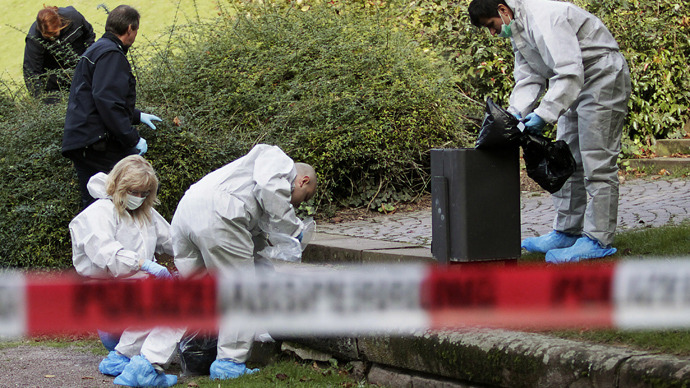The number of terror attacks in Europe rose significantly last year, pan-European police force Europol reported. The agency warned that conflicts in Syria and Mali provided potential breeding grounds for future militants.
Europol’s annual terrorism report identified 219 completed or
failed attacks in 2012 in EU-member states. The numbers represent a
26 per cent rise from 2011, when 174 such incidents were
reported.
Europol defines a “terrorist” offense as an intentional act which
may seriously damage a country or international organization when
committed to intimidate a population, compel a government to act,
or destabilize political, economic, or social structures.
"The threat from terrorism ... remains strong in Europe. It also
continues to evolve from structured groups and networks to smaller
EU-based groups and solo terrorists or lone actors," the EU
Terrorism Situation and Trend Report stated on Thursday.
Seventeen people died last year across the EU in terror plots. The
deadliest were attacks by a lone gunman in France and a bombing at
Bulgaria's Burgas airport, each of which killed seven.
But according to the agency, Europe may be facing more terror
troubles in the future – and those threats may come from
non-European countries.
Europol warned of the “volatile situation in Mali,” saying
it “offers a new theater that may appear an attractive
destination for those seeking to engage in armed conflict in
support of religiously inspired insurgents."
"These individuals may pose a threat on their return to the
EU,” the report added. France has been aiming to drive out
Al-Qaeda linked insurgents in Mali since January.
Europol Director Rob Wainwright has acknowledged the events in
Mali, saying they are of “major interest to the security
situation of the EU,” Reuters reported.
The same warnings went for Syria, which saw a rise in the number of
EU citizens traveling to the country as jihadists to “fight
alongside groups associated with religiously inspired
terrorism."
The report also said that Syria was the “destination of choice
for foreign fighters in 2012," citing the risk of EU citizens,
upon their return, using their new training and knowledge for
activities in Europe.
EU citizens have also been detected in Somalia, where they are
believed to be affiliated with Al-Qaeda, the report added.


